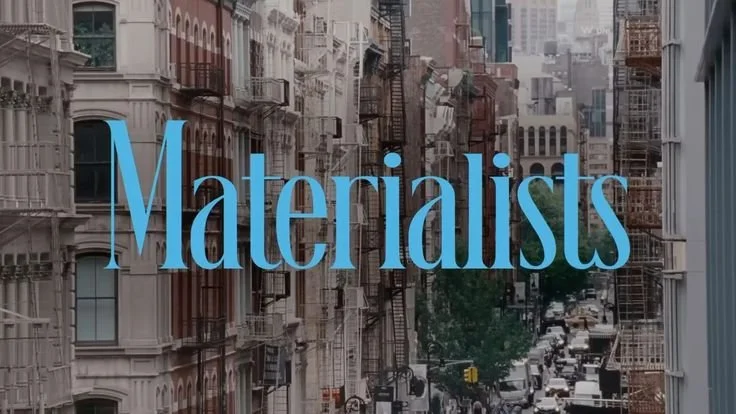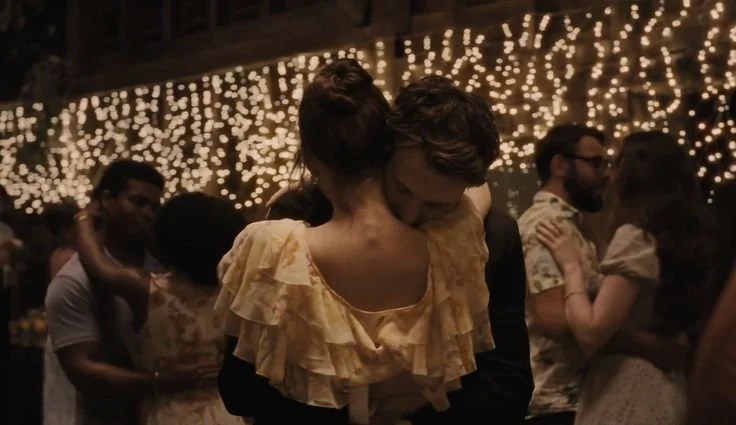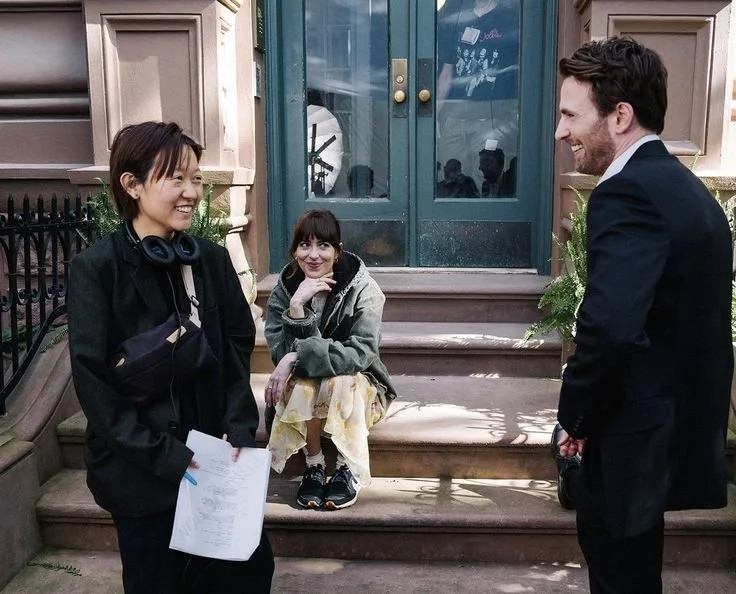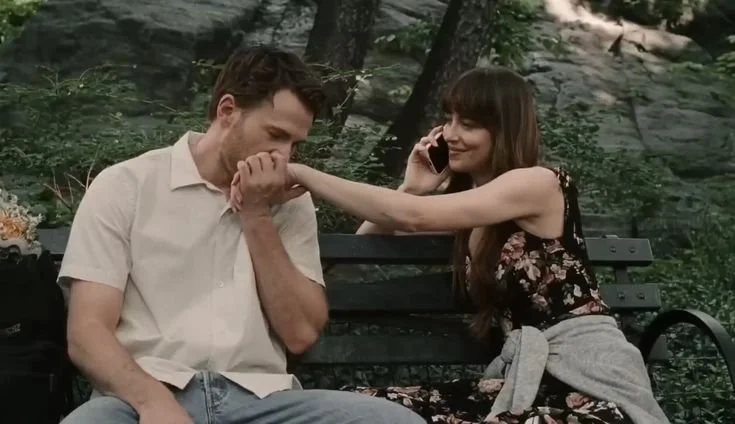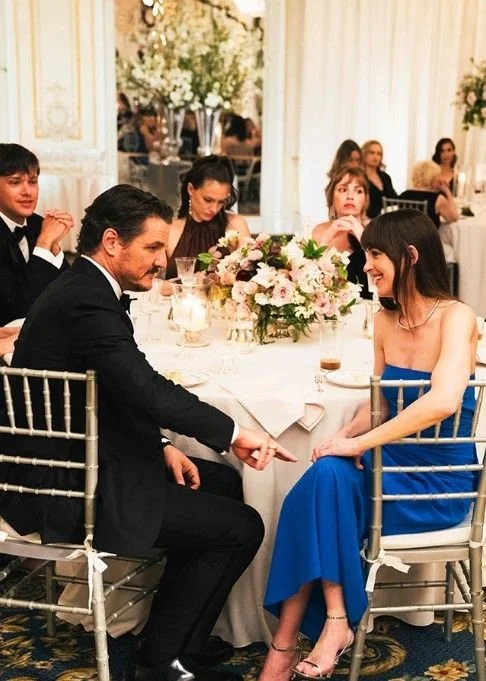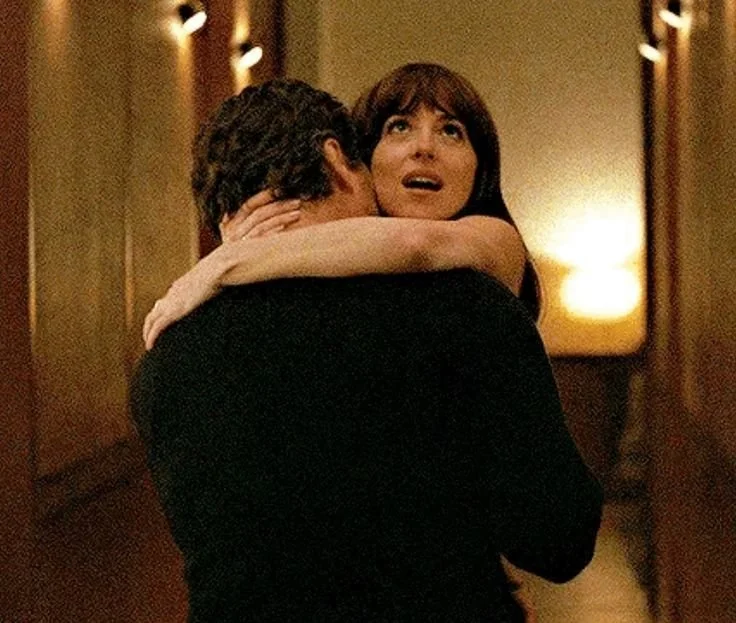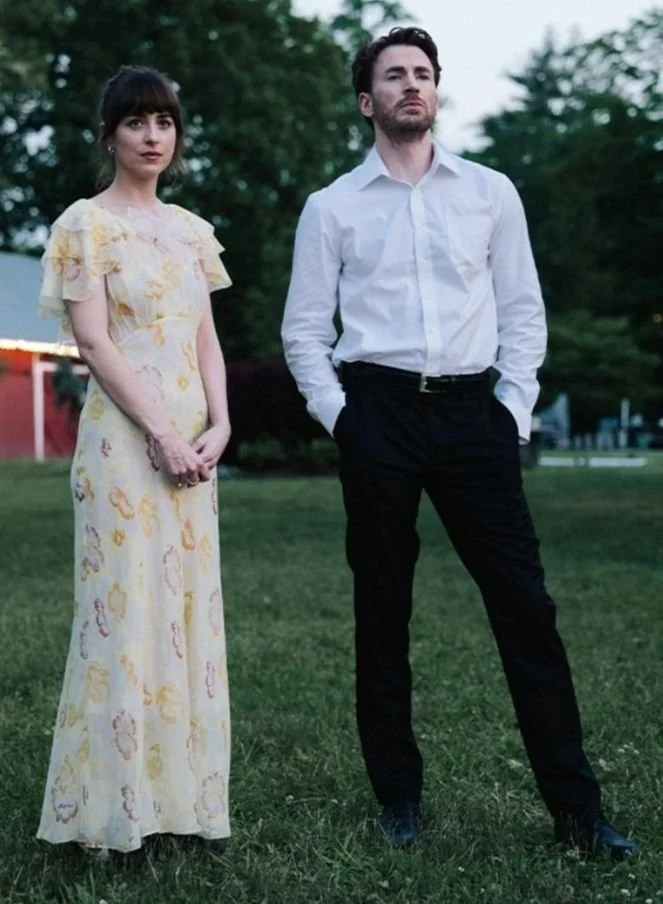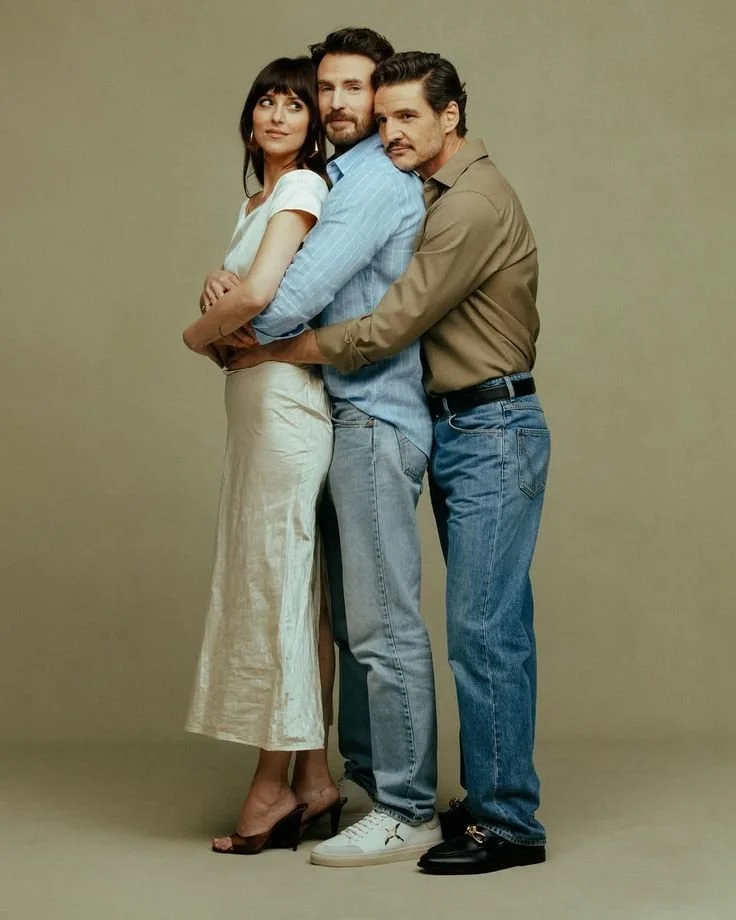The Material Condition of Love: A Review of Celine Song’s 'Materialists'
On Romantic Capitalism, Dakota Johnson’s Redemption, and Celine Song’s Tender War Between Heart and Head
By Natalie McCarty
“Isn’t marriage a business deal?”
“Yes, it is, but love has to be on the table.”
Image Courtesy of A24
Celine Song’s Materialists is the most brilliant romantic comedy of the decade. (I just double-checked Forgetting Sarah Marshall’s release date before I made that claim.)
In all seriousness, I wept. I cried in that fully sold-out theater and remembered my life. I felt the weight of the present, the fragile hope of the future, and the conflict that time, longing, and perspective bring to the heart. To the mind. And, most especially, to the altar.
I felt as though Materialists was another profound chapter not only in Song’s brilliant filmography but in this nuanced love-triangle world she and her husband, Justin Kuritzkes, are building with Past Lives and Challengers.
Image Courtesy of A24
Materialists draws deliberate, almost reverential inspiration from cinematic landmarks like Pride and Prejudice, When Harry Met Sally…, Stand and Deliver, and my all-time favorite, Jerry Maguire, yet it carves out an entirely new voice. It’s both a sweeping love letter to rom-coms past and a bold ode to their future, all while reflecting the complexities of our times and somehow managing to feel like a warm memory.
There were thematic and signature cues that echoed Past Lives, especially the bookend moments where Song positions her characters face-to-face in the middle of the street—arguing, confessing, unraveling. It’s so real, so sobering. So quintessentially New York. To stand in front of shuttered storefronts, begging someone to leave you, or fighting for them to stay. To admit your love in a way so fervently, it rivals Mr. Darcy’s own proposal. New York gives you the space for that.
The city breathes in paradoxes of turmoil and peace, entwined. It was built on ruthless pursuit. A relentless chase after the perpetually elusive, especially in love.
Image Courtesy of A24
This unflinching portrayal of confrontation is mirrored in Song’s cinematic style, where every frame is meticulously composed to both immerse and soothe. The colors are so warm they seem to cradle your soul, drawing you into the film’s world from the very first scene—a delicate flower trade between the first couple ever to marry in pre-marital times—before seamlessly shifting to the bustling streets around Waverly Place. You’re never jarred, only welcomed. Every scene echoes and bookmarks another. Every moment is deliberate; nothing is wasted. Each layer folds perfectly over the next. Song’s films always leave me wishing they would never end.
More than just visual warmth, Song’s style peels back your layers and invites vulnerability. Her imagery doesn’t just show you the story, it enfolds you, weaving you in, stripping away defenses so the rawness of human longing becomes undeniable.
Image Courtesy of A24
This surprised me, as I truly did not expect this from Materialists. Despite my admiration for Song’s work, I’ve long had reservations about Dakota Johnson’s acting. I often found her flat, too deadpan for nuance, and doubted the chemistry could carry a film so reliant on subtlety. Yet Johnson truly shone as Lucy. Given the perfect role, she revealed depths I hadn’t seen before: relatable, endearing, earnest. She embodied the modern woman in all her contradictions and strength. In her, I saw myself reflected.
The casting was impeccable all around. Pedro Pascal was the perfect Harry. I think only he possesses the capability to be ‘a unicorn’ with all that charm and charisma. Pascal has the rare ability to be both magnetic and vulnerable human, which is a feat nearly impossible for characters defined by wealth and power.
Zoë Winters delivered a standout performance, her expressive face and heartbreaking cry unforgettable. I can’t wait to see more from her.
And Chris Evans? He simply was John. I think only he could play a struggling, broke actor in his 30s who still has roommates, and yet you’d still want to be with him. He’s just so damn lovable and kind. And safe.
Image Courtesy of A24
There’s a certain kind of film that doesn’t just tell a story but rather manages to extract one from your own life. You sit in the dark of the theater, and suddenly you’re watching memories that aren’t yours but feel like they might be. For me, Materialists is that kind of film.
So for those who’ve seen it, let’s talk. Because there was the me before Materialists and the one after.
Image Courtesy of A24
I’ll be the first to admit it: love makes me feel like an idiot.
I’m a woman of math. Of numbers. Of calculated risk. I look at relationships, at least now, through the lens of investment, practicality, compatibility. I wasn’t always this way. It’s a mechanism I adopted after a love that felt easy. Not in practice, but in feeling.
Loving him wasn’t a question; it was a given. Our compatibility? Not so much. What we shared most was that we loved each other, and for a while, that was enough to make things work. Until it wasn’t. Until money, time, and the realities of adulthood pulled us onto different paths. Reverence for each other alone couldn’t hold us together; resentment bloomed in its place, because even that endless, eternal love couldn’t stretch far enough to make sense of us anymore (hello, Lucy and John).
As I said, Celine Song makes me weep. I believe her. Maybe we’ve shared a brain. Maybe I was her in a past life—even though she’s still alive. Her work holds too many eerie overlaps for it not to know me, or for me not to know it.
I could write about every scene in this film, and I will, if anyone keeps reading! But for now, let me say this: there are no words for Materialists, and yet I’ll keep trying.
Image Courtesy of A24
Lucy (Dakota Johnson) is hungry for more. Some people just want more. And some people are more. And that’s okay. To be clear-eyed and concise. Confident, not cocky. Great at a job you hate but have a knack for. To flirt effortlessly and let romance die at the first sign of impracticality. To calculate the risks before letting love in. You could have Iceland. Penthouses. Brilliant conversation. Harry (Pedro Pascal). The perfect man.
Image Courtesy of A24
Or you could have love. True, deep, inconvenient love. The kind that knows your drink order after ten years apart. The kind you call in crisis, no matter how long it’s been. That knows you from the inside out, because you loved wildly, fiercely, before you learned to protect yourself.
To love me now is to know only the version I built after heartbreak. But who I was before? That’s someone you’ll never meet. That’s true for all of us. That’s true for Lucy and John (Chris Evans). Familiarity. Car rides. A rhythm that time never really undoes.
Image Courtesy of A24
Throughout Materialists, the question is repeated: “What are you thinking about?” It’s disarming in its simplicity. Between old lovers. In tense silences. In quiet longing. It cuts through posturing. It invites honesty.
Both Harry and John see Lucy. Truly. Harry sees who she is now and what she wants. He can offer it. Vice versa. It’s a business deal, but one built on mutual respect. A perfect partnership.
But John sees something else: who she was, who she’s becoming, and who she’ll be. He sees her old and gray. Holding the hands of kids who share their eyes. That’s not a better kind of love. Just a different one.
“You make me brave enough to admit that I want to be happy. And I want to be happy with you.”
Image Courtesy of A24
Is it wrong to choose someone because of the value they add to your life? Is it wrong to value someone because they love you and you love them too?
Sometimes, there’s love. Sometimes, there’s value. If we’re lucky, they overlap. But often, they don’t. It’s possible to love someone and not value them. To value someone deeply and not feel the fire. It’s not evil. It’s human. It’s instinctual. Primitive.
What Materialists left me asking, above all else, is this: In love, how much of yourself are you willing to compromise to live the life you want?

